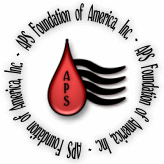International Medical Summit Held in Miami to Stimulate Collaborative Clinical Research on Antiphospholipid Syndrome
Disease Responsible for 1 out of 3 Strokes in Young People
1 out of 4 Recurrent Miscarriages
Goal to Find a Cure and Heighten Awareness About this Devastating Disease
Miami, Nov. 1, 2010 – Antiphospholipid Syndrome (APS) is a condition that may be responsible for up to one-third of strokes in people under age 50, up to one-fifth of all cases of blood clots in large veins, and one-quarter of recurrent miscarriages. Nonetheless, relatively few randomized clinical trials have been conducted involving people with APS, and those completed have included small numbers of participants. To stimulate an international discussion on this topic, the APS Clinical Research Task Force is hosting a summit titled, “Breaking Out of the Box,” in Miami from Nov. 2-4, 2010. The task force, co-chaired by Hospital for Special Surgery physician-scientists Doruk Erkan, M.D., and Michael D. Lockshin, M.D., was formed as a result of the 13th International Congress on Antiphospholipid Antibodies in April 2010.
The two dozen summit attendees will include experts in the field of APS research from around the world, including Australia, Brazil, Italy, the Netherlands, the United Kingdom and the United States.
“APS research has not progressed substantially over the past 25 years, after researchers developed a simple blood test to identify the antibodies,” said Dr. Lockshin, director of the Barbara Volcker Center for Women and Rheumatic Disease at Hospital for Special Surgery in New York City. “As a result, we are gathering rigorous thinkers to identify critical APS research questions and establish the process for moving forward in a coordinated, strategic international effort.”
APS involves the formation of abnormal blood clots in arteries and veins, which puts people at risk for stroke and pregnancy complications. Blood clots form because the immune system mistakenly produces antibodies against phospholipid-binding plasma proteins (aPL).
APS can be diagnosed through repeated blood testing. While no cure exists and the cause is still unclear, treatment includes long-term blood thinning to prevent clots from forming. This condition can occur in conjunction with other autoimmune diseases, such as systemic lupus erythematosus and rheumatoid arthritis.
Several major issues have slowed the progress of APS clinical research, such as the fact that there are few standardized tests to detect the antiphospholipid antibodies, study participants have a range of symptoms, the biology underlying the condition is not completely understood, and smaller efforts have not recruited enough study participants.
“There is an urgent need for a true international collaborative approach to design and conduct large-scale clinical trials involving people who have aPL,” said Dr. Erkan, clinical co-director of the Mary Kirkland Center for Lupus Care at Hospital for Special Surgery. “At this summit, we hope to stimulate dialogue about this condition and formulate a solid research question from which to generate future clinical trials that are feasible, interesting and relevant.”
The summit will include presentations about transforming and globalizing APS research, lessons learned from APS research registries, and several group brainstorming sessions for identifying, refining and finalizing research questions. Scientists will conclude by setting a timeline for critical tasks to complete in order to proceed with clinical studies.
The conclusions of the APS Clinical Research Task Force and the preliminary outcomes from the Miami summit will be presented at the upcoming American College of Rheumatology annual scientific meeting in Atlanta, in poster session A on Nov. 8 from 9 a.m.-11 a.m. as Abstract #6, Antiphospholipid Syndrome (APS) Clinical Research Task Force (CRTF) Report.
About Hospital for Special Surgery Founded in 1863, Hospital for Special Surgery (HSS) is a world leader in orthopedics, rheumatology and rehabilitation. HSS is nationally ranked No. 1 in orthopedics, No. 3 in rheumatology, and No. 16 in neurology by U.S.News & World Report (2010-11), and has received Magnet Recognition for Excellence in Nursing Service from the American Nurses Credentialing Center, and has one of the lowest infection rates in the country. From 2007 to 2011, HSS has been a recipient of the HealthGrades Joint Replacement Excellence Award. A member of the NewYork-Presbyterian Healthcare System and an affiliate of Weill Cornell Medical College, HSS provides orthopedic and rheumatologic patient care at NewYork-Presbyterian Hospital at New York Weill Cornell Medical Center. All Hospital for Special Surgery medical staff are on the faculty of Weill Cornell Medical College. The hospital's research division is internationally recognized as a leader in the investigation of musculoskeletal and autoimmune diseases. Hospital for Special Surgery is located in New York City and online at http://www.hss.edu/.
Phyllis Fisher
fisherp@hss.edu
212-606-1197
Tracy Hickenbottom
hickenbottomt@hss.edu
212-606-1197
###
Sent out by the APS Foundation of America, Inc Founded in 2005, the APS Foundation of America, Inc. is the leading United States nonprofit health agency dedicated to bringing national awareness to Antiphospholipid Antibody Syndrome (APS), the major cause of multiple miscarriages, thrombosis, young strokes and heart attacks. We are a volunteer run, community based 501(c)3 non-profit Public Charity organization and is dedicated to fostering and facilitating joint efforts in the areas of education, support, public awareness, research and patient services. Our URL is http://www.apsfa.org/
Keywords: APSFA, APS Foundation, antiphospholipid antibody syndrome, lupus, stroke, dvt, pe, thrombosis, clot, migraine, hughes syndrome, miscarriage, america, usa, anticoagulant, heart attack, APS, american, hss, hospital for special surgery, association






0 Comments:
Post a Comment